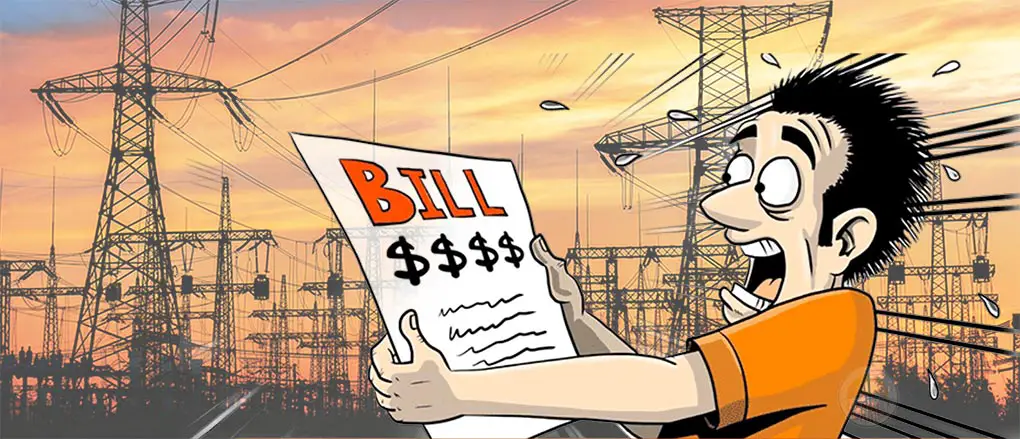In today's world, where the cost of living continues to rise, finding ways to reduce utility bills has become a priority for many households. By adopting energy-efficient practices and making small changes in our daily routines, we can significantly decrease our monthly utility expenses while also contributing to a more sustainable future.
This article aims to provide you with practical tips and strategies to help you lower your utility bills and create a more efficient home.
Energy Conservation
1.1 Upgrade to Energy-Efficient Appliances: One of the most effective ways to reduce utility bills is by replacing old, energy-guzzling appliances with energy-efficient models. Look for appliances with the ENERGY STAR label, which indicates they meet strict energy efficiency standards.
1.2 Unplug Unused Electronics: Electronics and appliances on standby mode still consume electricity. Unplug chargers, TVs, gaming consoles, and other devices when not in use, or use power strips with on/off switches to make it easier to cut off power to multiple devices at once.
1.3 Optimize Lighting: Switch to energy-efficient LED or CFL bulbs, which consume significantly less electricity than traditional incandescent bulbs. Additionally, make it a habit to turn off lights when leaving a room and utilize natural lighting during the day.
1.4 Install Smart Thermostats: Invest in a programmable or smart thermostat that allows you to set specific temperature schedules. Adjusting the temperature according to your needs, such as lowering it during sleep or when you're away, can result in substantial energy savings.
Water Conservation
2.1 Fix Leaks: A dripping faucet or a leaking toilet can waste a significant amount of water over time. Regularly check for leaks and repair them promptly to avoid unnecessary water consumption.
2.2 Install Low-Flow Fixtures: Replace old showerheads and faucets with low-flow alternatives that reduce water usage without compromising water pressure. You can save both water and the energy required to heat it.
2.3 Efficient Water Usage: Be mindful of your water usage habits. Take shorter showers, turn off the faucet while brushing your teeth or washing dishes, and consider collecting rainwater for outdoor use.

Heating and Cooling
3.1 Insulate Your Home: Proper insulation prevents heat transfer and keeps your home cooler in summer and warmer in winter. Insulate the attic, walls, and windows to reduce the need for excessive heating or cooling.
3.2 Regular HVAC Maintenance: Schedule annual maintenance for your heating, ventilation, and air conditioning (HVAC) system. Clean or replace filters regularly to ensure optimal performance and energy efficiency.
3.3 Embrace Natural Ventilation: Use ceiling fans and open windows strategically to create a cross breeze during mild weather instead of relying solely on air conditioning. Ceiling fans consume significantly less energy than cooling systems.
Efficient Water Heating
4.1 Lower Water Heater Temperature: Lowering the temperature on your water heater to around 120 degrees Fahrenheit can save energy without compromising your comfort. Consider insulating the water heater and pipes to minimize heat loss.
4.2 Use Cold Water for Laundry: Most of the energy consumed by washing machines goes into heating the water. By using cold water for laundry, you can save energy and still achieve clean clothes.
4.3 Timed Showers: Encourage shorter showers and avoid keeping the hot water running unnecessarily. Conserving hot water directly reduces the energy required to heat it.
Lifestyle Changes
5.1 Unplug Energy-Intensive Activities: Activities like running the dishwasher, doing laundry, or running high-energy appliances during peak hours can lead to higher utility rates. Opt for off-peak hours or adjust your routines accordingly.
5.2 Utilize Natural Light: Open curtains and blinds during the day to maximize natural light and minimize the need for artificial lighting. This small adjustment can save electricity while creating a more pleasant living environment.
5.3 Adjust Thermostat Habits: Dress appropriately for the season and adjust your thermostat accordingly. Putting on a sweater in winter or using fans in summer can help maintain comfort while reducing the load on your HVAC system.
Reducing utility bills is not only beneficial for your wallet but also for the environment. By implementing the tips and strategies outlined in this article, you can create a more efficient home, conserve resources, and contribute to a greener future. Remember that small changes in your daily habits and investments in energy-efficient appliances can lead to significant long-term savings. Start implementing these measures today and enjoy the benefits of reduced utility bills while minimizing your environmental footprint.

